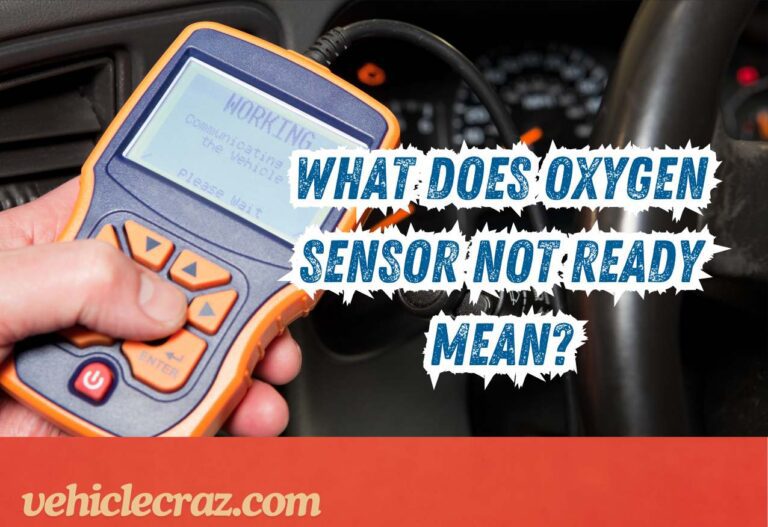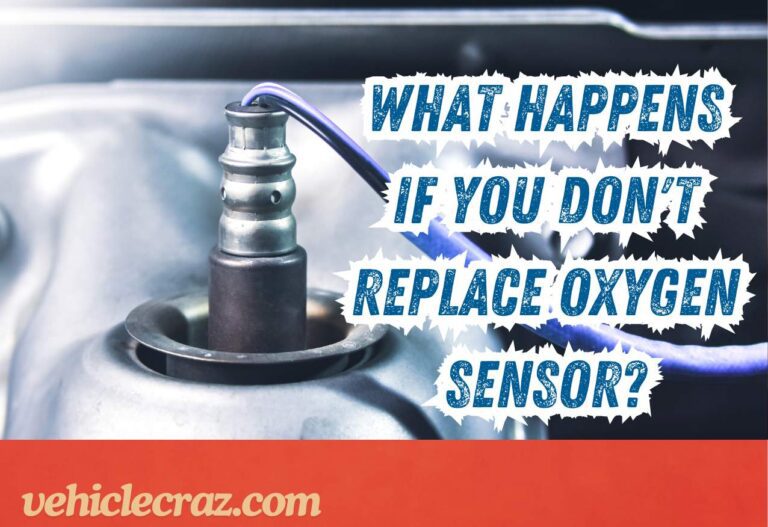An oxygen sensor monitors the oxygen levels in a vehicle’s exhaust gases to optimize fuel efficiency and emissions. Located both before and after the catalytic converter, it uses a zirconium dioxide ceramic element coated with platinum.
The sensor generates a voltage based on the difference in oxygen levels between the exhaust gases and ambient air. A higher voltage indicates a rich mixture (low oxygen), while a lower voltage indicates a lean mixture (high oxygen).
This voltage signal is sent to the Engine Control Unit (ECU), which adjusts the air-fuel mixture in real-time for optimal engine performance. Modern vehicles often use heated oxygen sensors (HO2S) for quicker response times and improved accuracy.
Can Oxygen Sensor Drain Battery?
An oxygen sensor (O2 sensor) is a critical component in a vehicle’s emissions control system, but it operates with very low power consumption. It generally draws power from the vehicle’s electrical system to heat up (if it’s a heated oxygen sensor, or HO2S) and to send signals to the Engine Control Unit (ECU). However, this power draw is minimal and not enough to drain a healthy car battery under normal conditions.
While a properly functioning oxygen sensor shouldn’t drain the battery, certain scenarios could potentially cause issues.
Electrical Short Circuits
If there’s a short circuit in the oxygen sensor’s wiring or connectors, it could cause a constant power draw from the battery, leading to drainage. This is more likely to happen if the wiring is damaged, exposed, or improperly installed.
Faulty ECU
The ECU controls the power to the oxygen sensors. If the ECU malfunctions, it might fail to turn off the sensors, leading to a continuous power drain.
Continuous Operation
In rare cases, a fault in the oxygen sensor itself could cause it to remain active even when the vehicle is off. This would continuously draw power from the battery.
Can a Faulty Oxygen Sensor Cause Electrical Issues in a Vehicle?
Yes, a faulty oxygen sensor can cause electrical issues in a vehicle. While the sensor itself operates with low power consumption, problems such as damaged wiring, corroded connectors, or a malfunctioning sensor can lead to electrical abnormalities.
For instance, a short circuit in the oxygen sensor’s wiring can cause excessive current draw, potentially draining the battery. Additionally, if the sensor sends incorrect signals to the Engine Control Unit (ECU), it may disrupt the engine’s air-fuel mixture, leading to poor performance.
What Components Can Drain a Car Battery When the Vehicle is Off?
Several components can cause a car battery to drain when the vehicle is off
Parasitic Draw
-
- Lights left on inside the vehicle, such as dome lights or trunk lights, can drain the battery over time.
- Similar to interior lights, these can remain on unnoticed and draw power.
- Devices like stereos, GPS systems, or dash cams that are improperly installed or have faulty wiring may draw power continuously.
- If the alarm system is not functioning correctly or is set too sensitively, it may activate frequently, draining the battery.
- Some components in modern vehicles, such as the Engine Control Unit (ECU) or infotainment system modules, can have a small parasitic draw to maintain memory settings and software updates.
Electrical Faults
-
- Electrical shorts occur when wires touch each other or come into contact with a conductive surface, creating a direct path for current flow without resistance. This can lead to a significant drain on the battery.
- Improper grounding or corrosion on ground connections can cause electrical leakage, where current flows unintentionally and drains the battery.









